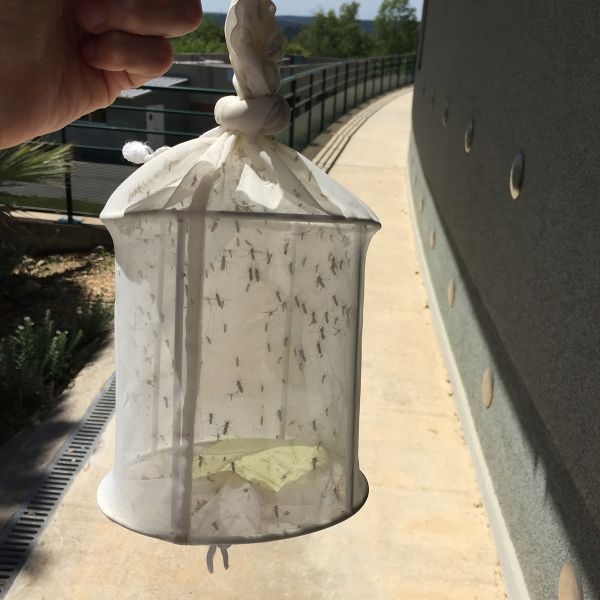Controlling mosquito-borne illnesses, such as Dengue or West Nile virus, has historically been difficult due to a lack of effective vaccines and concerns about the environmental impact of insecticides. Thus, scientists have turned to manipulating Wolbachia, a parasitic bacterium within mosquitoes, as a way to control the reproductive fitness of mosquito populations that transmit human disease.
In a new study in Nature Communications, an international team including scientists from the Marine Biological Laboratory (MBL) and the University of Chicago identified a new mobile DNA element in Wolbachia, which may contribute to improved control strategies for mosquito vectors of disease.
Led by former MBL scientists Julie Reveillaud of INRA, France, and Sarah Bordenstein of Vanderbilt University, the researchers reconstructed near-complete genomes of Wolbachia isolated from individual ovaries of four Culex pipiens mosquitoes. In the process, they identified a novel plasmid — a circular piece of DNA that can replicate independently of the chromosomes. Because a plasmid is a mobile DNA element, it can transfer from one cell to another and can have great implications for the fitness and evolution of a microbial species. Mobile genetic elements that can spread through different Wolbachia cells, and thus across a Wolbachia population, hold promise for controlling mosquito populations that may carry disease.
Read more at Marine Biological Laboratory
Photo: A trap of Culex pipiens mosquitoes from France, provided by EID (Entente Interdépartementale Démoustication) in Montpellier, France. Credit: Julie Reveillaud


